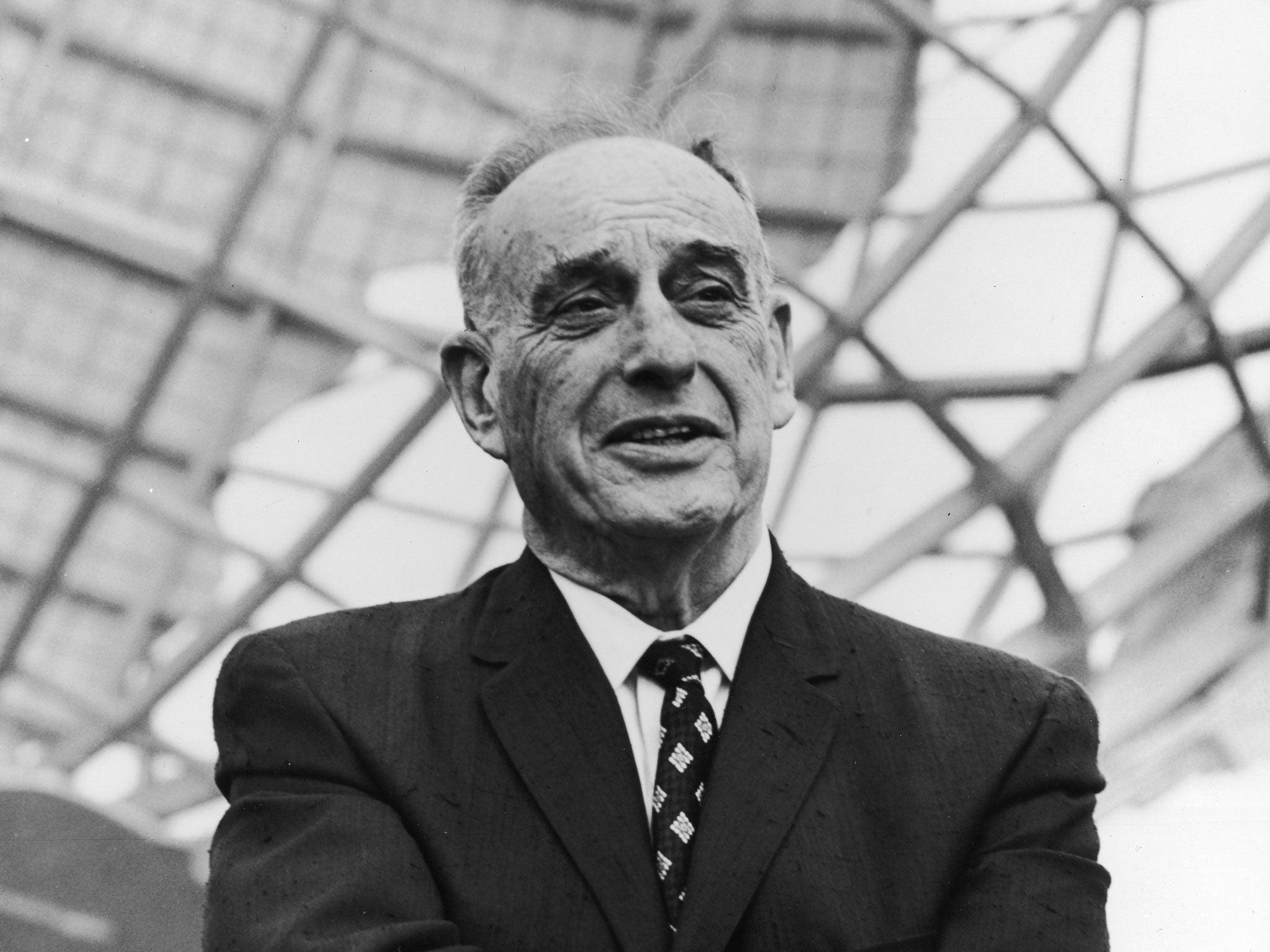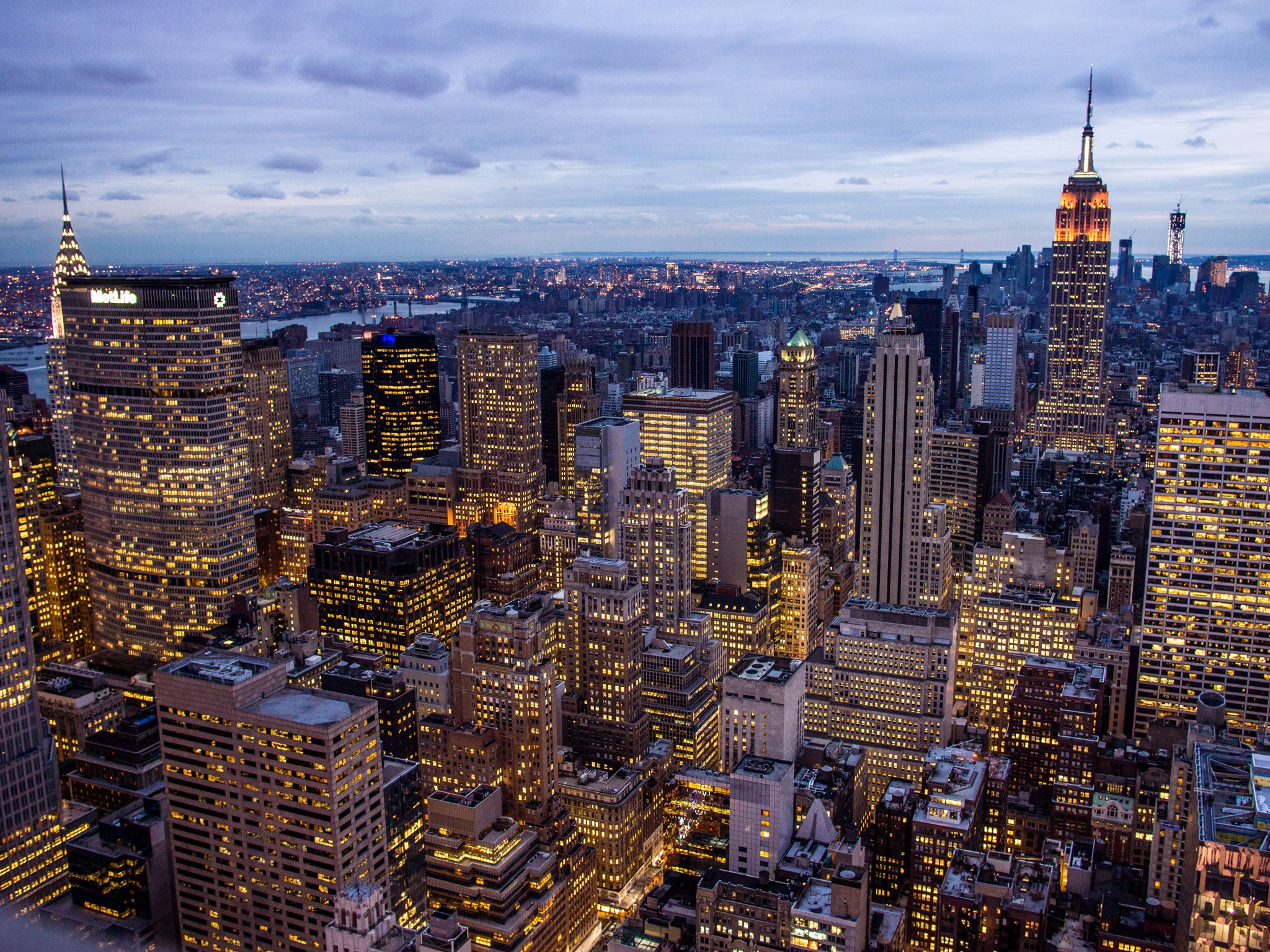The Power Broker: Robert Moses and the Fall of New York by Robert A Caro, book review
Robert Moses was 'the man who built the Big Apple'. His story goes to the heart of democracy's great dilemma, writes Vernon Bogdanor

Your support helps us to tell the story
From reproductive rights to climate change to Big Tech, The Independent is on the ground when the story is developing. Whether it's investigating the financials of Elon Musk's pro-Trump PAC or producing our latest documentary, 'The A Word', which shines a light on the American women fighting for reproductive rights, we know how important it is to parse out the facts from the messaging.
At such a critical moment in US history, we need reporters on the ground. Your donation allows us to keep sending journalists to speak to both sides of the story.
The Independent is trusted by Americans across the entire political spectrum. And unlike many other quality news outlets, we choose not to lock Americans out of our reporting and analysis with paywalls. We believe quality journalism should be available to everyone, paid for by those who can afford it.
Your support makes all the difference.Robert Caro is best known for his multi-volume study of Lyndon Johnson, President of the United States from 1963 to 1969, regarded by many as the greatest political biography of modern times. But he had already established his reputation with his Pulitzer prize-winning biography of Robert Moses, The Power Broker, originally published in 1974, and now published in Britain for the first time.
Caro does everything on the grand scale. His four massive volumes on Johnson take its hero to 1964, just one year into his presidency. The Power Broker is 1169 pages of text, followed by 77 pages of notes.
Henry James said that many of the great novels of the 19th century were "large, loose, baggy monsters", complaining that they contained too much of "the accidental and the arbitrary". The Power Broker is just such a baggy monster, but there is nothing accidental or arbitrary about it. Some may think it a waste of time to read so much about a man few in Britain will have heard of. They would be wrong. Caro's style is gripping, indeed hypnotic, and he squeezes every ounce of drama from his remarkable story.
Who, then, was Robert Moses? He was, Caro tells us, "the shaper of the greatest city in the New World", New York, transforming its landscape, and building on a massive scale – parks, roads, buildings and dams. He had, what Caro calls, a "savage energy".
New York is a city of islands. Only one of its five boroughs, the Bronx, lies on the mainland. Moses, more than anyone else, linked the boroughs with bridges. Between 1931 and 1974, seven were built, all by Moses. He also built all of the 15 expressways that cut across the city, 16 parkways linking the city with the suburbs, 20,000 acres of parkland and 658 playgrounds; also the Lincoln Center, the United Nations headquarters and three university campuses. The sheer scale of his achievement is astonishing. He was, without question, the most influential person in New York for over forty years, in Caro's words, "the greatest builder in the history of America, perhaps the greatest builder in the history of the world". Of few men can it so accurately be said – si monumentum requiris, circumspice – if you seek his memorial, look around you.
As if these achievements were not enough, Moses also drew up the blueprint for the reorganisation of New York state government to make strong executive leadership possible under Governor Al Smith in the 1920s. For the first time in America, the needs of the urban poor were met by reforms in working conditions, housing and hospitals. New York became the best governed state in the Union, a laboratory for Franklin Roosevelt's New Deal, which, ironically, Moses opposed, regarding it as "socialistic".

But the most extraordinary feature of Moses's career is that the wielder of such enormous power was never elected to a single public office. Nevertheless, he held sway over successive governors, mayors and even presidents, who seemed incapable of combating him. Roosevelt and mayor Fiorello La Guardia of New York both tried to sack him; both failed.
Caro is interested not only in Moses's achievements but also what his story tells us about the nature of power. Indeed, The Power Broker seeks to answer the same two questions that Caro essentially poses in his biography of Lyndon Johnson: how was power acquired, and what use was made of that power?
The answer in the cases of both men is that power was acquired by methods that are not for the squeamish. "If the end doesn't justify the means," Moses used to say, "what does?" Both Johnson and Moses were utterly ruthless men, adept at cutting corners, and even ignoring the law when it suited them. "Nothing I have ever done has been tinged with legality," Moses quipped, but only half in jest. Though personally honest, he did not hesitate to give others advance knowledge of expressway routes to secure co- operation, nor to threaten with exposure opponents whose private lives would not stand up to public scrutiny.
Moses's building projects were achieved at great human cost. They required the enforced displacement of whole communities – around 500,000 were evicted in New York city alone – mainly black, Hispanic and poor. No alternative provision was made, and they were pushed into sub-standard accommodation. The ghettoization of New York is one of Moses's less admirable achievements. Moses, Caro believes, despite his colossal building projects, left a city "in chaos and despair". a ghettoised city of congestion and slums. "He had built great monuments and great parks, but people are afraid to travel or to walk around them." One of the many merits of The Power Broker is that it analyses not only the power of the powerful, but the effects of that power on the powerless.
Would New York would have been better off without Moses? That is a question Caro finds impossible to answer. Moses, he admits, "may have bent the democratic processes of the city to his own ends to build public works". But "left to themselves, these processes proved unequal to the building required. The problem of constructing large-scale public works in a crowded urban setting, where such works impinge on the lives of or displace thousands of voters, is one which democracy has not yet solved".
Caro's final verdict on the matter is that: "It is impossible to say that New York would have been a better city if Robert Moses had never lived. It is possible to say only that it would have been a different city."
Power, Caro tells us, is "a drug that creates in the user a need for larger and larger dosages". But nothing worthwhile can be done without power. Like Lyndon Johnson, Robert Moses did great things. But, as with Johnson, they were done at great cost.
If you give someone the power to do good, you also give them the power to do evil. That is the dilemma of democratic government. Great results can be achieved only by those with power; but those with power are all too likely to misuse it. Can a democracy combine visionary leadership with effective checks and balances to contain the misuse of power? No book illustrates this fundamental dilemma of democracy better than The Power Broker. It is a stupendous achievement. Indeed, no student of government can regard his education as complete until he has read it.
Vernon Bogdanor is Professor of Government, King's College, London
Join our commenting forum
Join thought-provoking conversations, follow other Independent readers and see their replies
Comments